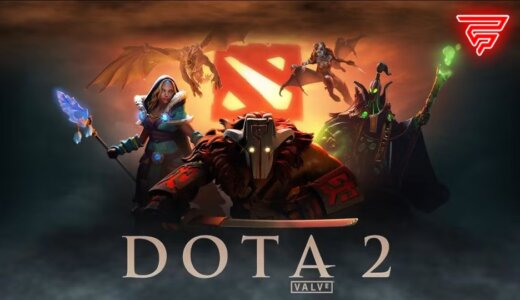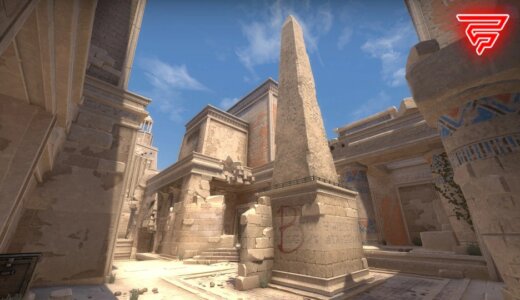Random Number Generation (RNG) is a fundamental mechanic in Dota 2 that determines the outcome of various in-game events through random chance. It is a defining factor in many modern games, and Dota 2 is no exception. RNG is a complex system that uses algorithms to generate random numbers, which are then used to determine the outcome of various events in the game.
In Dota 2, RNG is used in a variety of ways, such as determining the chance of landing a critical hit, evading an attack, or procuring an item drop. The use of RNG in the game adds an element of unpredictability and uncertainty, which can make the game more exciting and challenging. However, it can also lead to frustration and controversy, as players may feel that their success or failure is based purely on luck rather than skill.
Understanding how RNG works in Dota 2 is essential for players who want to improve their gameplay and increase their chances of success. This article will provide an in-depth look at RNG in Dota 2, including how it works, how it is used in the game, and the controversies surrounding its use.
Understanding RNG in Dota 2
Random Number Generation (RNG) is a crucial mechanic in Dota 2 that adds an element of unpredictability to the game. RNG is used in various aspects of the game, such as determining the chance of landing a critical hit or evading an attack.
In Dota 2, RNG is implemented through an algorithm that generates a random number between 0 and 1. This number is then used to determine the outcome of an event. For instance, if a player has a 25% chance of evading an attack, the RNG algorithm generates a random number between 0 and 1. If the number generated is less than or equal to 0.25, the attack is evaded; otherwise, the attack lands.
RNG is an essential mechanic in Dota 2 because it adds an element of unpredictability to the game. It means that even if a player has a significant advantage over their opponent, they are not guaranteed to win. This mechanic also makes the game more exciting to watch because it creates moments of tension and excitement.
However, RNG can also be frustrating for players because it can lead to situations where they lose a game due to bad luck. For example, a player might miss a crucial attack due to a low chance of landing a hit, which can cost them the game.
Overall, RNG is a vital mechanic in Dota 2 that adds an element of unpredictability to the game. While it can be frustrating for players, it also makes the game more exciting to watch and play.
Mechanics of Dota 2 RNG
Random Number Generation (RNG) is a crucial mechanic in Dota 2 that adds an element of unpredictability to the game. The game’s RNG system is responsible for determining the outcome of various events, such as critical hits, evasion, and bashes.
In Dota 2, RNG is used to determine the value of something through random chance. For instance, when a player attacks an enemy, the amount of damage dealt is based on a random number generated by the game’s RNG system. Similarly, when a player has an ability that allows them to land a critical hit, the probability of the critical hit is determined by the RNG system.
RNG in Dota 2 is not limited to combat mechanics. The game’s item drop system is also based on RNG. When a player kills a neutral creep, there is a chance that the creep will drop an item. The probability of the item drop is determined by the RNG system.
It is worth noting that RNG in Dota 2 is not entirely random. The game’s RNG system uses a pseudo-random distribution (PRD) algorithm, which ensures that the probability of an event occurring increases with each attempt. This means that the more a player attempts a specific action, such as landing a critical hit, the higher the probability of the action occurring.
In conclusion, the mechanics of Dota 2 RNG are an essential part of the game. The system adds an element of unpredictability to combat and item drops, making the game more engaging and challenging. However, players must also understand that RNG in Dota 2 is not entirely random and is based on a PRD algorithm.
Impact of RNG on Dota 2 Gameplay
Random Number Generation (RNG) is a crucial aspect of Dota 2 gameplay that adds a degree of unpredictability to the game. RNG is used to determine the value of something by random chance. This mechanic is used in many abilities in Dota 2 to bring a certain level of uncertainty to battles.
RNG plays a significant role in determining the outcome of battles in Dota 2. For example, the chance to land a critical hit or dodge an attack is determined by RNG. This can lead to some frustrating moments for players, as the outcome of the game can be determined by a single lucky roll of the dice.
However, RNG also adds an element of excitement to the game. It can create tense moments where players are on the edge of their seats, waiting to see if they will land that critical hit or evade an attack. The unpredictability of RNG makes Dota 2 a thrilling game to watch and play.
Despite its importance, RNG is a controversial mechanic in Dota 2. Some players believe that it adds too much randomness to the game, making it less skill-based. Others argue that RNG adds an element of strategy to the game, as players must adapt to changing circumstances and make decisions based on probability.
Overall, RNG is a vital part of Dota 2 gameplay. It adds an element of unpredictability and excitement to the game, while also creating controversy among players.
Random Number Generator in Video Games
Random Number Generator (RNG) is an algorithm that produces a sequence of numbers that cannot be predicted. In video games, RNG is used to introduce an element of chance and unpredictability. The use of RNG can make games more exciting and unpredictable, but it can also lead to frustration and unfairness, especially in competitive games.
In Dota 2, RNG plays a significant role in determining the outcome of battles. Many abilities in Dota 2 make use of RNG to bring uncertainty to the game. For example, the ability to dodge attacks or land critical hits is determined by RNG.
The use of RNG in Dota 2 has been a subject of controversy among players. Some argue that it adds an element of randomness that makes the game more exciting and unpredictable. Others argue that it can lead to unfairness and frustration, especially when the outcome of a game is determined by a lucky or unlucky roll of the dice.
Despite the controversy surrounding RNG in video games, it remains a defining factor in many modern games. Game developers use RNG to create more complex and dynamic gameplay, but they also need to balance the use of RNG with fairness and predictability.
In conclusion, RNG is an essential element in modern video games, including Dota 2. While it can add an element of excitement and unpredictability, it can also lead to frustration and unfairness. Game developers need to balance the use of RNG with fairness and predictability to create a fun and engaging gaming experience.
RNG and Dota 2 Hero Abilities
In Dota 2, RNG plays a crucial role in determining the outcome of hero abilities. Every hero has abilities that make use of RNG to bring an element of uncertainty to battles. The Random Number Generator (RNG) determines the value of something through random chance.
One example of an ability that uses RNG is Phantom Assassin’s Coup de Grace. This ability grants a chance for Phantom Assassin’s attacks to deal critical damage. The chance of a critical hit is determined by RNG, which means that it can either deal a lot of damage or no damage at all.
Another example is Chaos Knight’s Chaos Bolt. This ability deals damage to an enemy hero and stuns them for a short period of time. The amount of damage and the duration of the stun are both determined by RNG. This means that the ability can either deal a lot of damage and stun the enemy for a long time, or it can deal minimal damage and stun the enemy for a short period of time.
In addition to hero abilities, items in Dota 2 also make use of RNG. For example, the Monkey King Bar item grants a chance for attacks to pierce through evasion and deal bonus damage. The chance of piercing through evasion is determined by RNG, which means that it can either hit the target or miss completely.
Overall, RNG plays a significant role in Dota 2 gameplay, and it is important for players to understand how it works to make informed decisions during battles.
Role of RNG in Dota 2 Item Drops
In Dota 2, the Item Drop system is a feature that allows players to obtain cosmetic items for free through playing the game. Drops cannot be sold on the Market, but can be gifted once to a friend. Available drops are defined by the Drop List. The Item Drop system is an essential part of the game, as it provides players with a chance to obtain cosmetic items without having to spend real money.
The Item Drop system in Dota 2 is based on RNG (Random Number Generation). This means that the chance of getting a particular item is random and not determined by any other factor. The RNG is an important mechanic in the game, as it adds an element of uncertainty to the Item Drop system.
Players can obtain drops by playing matchmaking, events, spectating a tournament game, or by using gift tools. The RNG determines the type of item that a player will receive. The chance of getting a rare or valuable item is low, while the chance of getting a common item is high.
The RNG in Dota 2 Item Drops has been a topic of controversy among players. Some players feel that the RNG is unfair, as it gives an advantage to players who are lucky enough to get rare or valuable items. Other players feel that the RNG is an important part of the game, as it adds an element of randomness and unpredictability to the Item Drop system.
Overall, the RNG in Dota 2 Item Drops plays an important role in the game, as it adds an element of uncertainty and unpredictability to the Item Drop system. While some players may feel that the RNG is unfair, it is an essential part of the game that adds to the overall experience.
Critiques of RNG in Dota 2
Randomness in Dota 2 has always been a topic of debate among players and critics alike. While some argue that RNG adds an element of unpredictability and excitement to the game, others argue that it can undermine skill and strategy. In this section, we will explore some of the critiques of RNG in Dota 2.
Unfairness
One of the main critiques of RNG in Dota 2 is that it can be unfair. The game’s reliance on RNG means that some players may get lucky and win fights or secure objectives, even if they are not as skilled as their opponents. This can lead to frustration and a feeling of helplessness among players who feel like they are at the mercy of chance.
Lack of Control
Another critique of RNG in Dota 2 is that it can make the game feel less strategic. When outcomes are determined by chance, players have less control over the outcome of battles and objectives. This can be frustrating for players who prefer a more strategic and methodical approach to the game.
Inconsistency
RNG can also lead to inconsistency in gameplay. When outcomes are determined by chance, it can be difficult to predict what will happen next. This can make it hard for players to plan their moves and strategies, as they cannot be certain of what will happen.
In conclusion, while RNG can add an element of unpredictability and excitement to Dota 2, it is not without its critiques. The reliance on chance can be unfair, make the game feel less strategic, and lead to inconsistency in gameplay. Players and developers alike should consider these critiques when designing and playing the game.
RNG in Dota 2 Tournaments
Random Number Generation (RNG) is a critical mechanic in Dota 2 tournaments. It determines the value of something through random chance, and many abilities make use of RNG to bring a certain degree of uncertainty to battle.
In Dota 2 tournaments, RNG can be a game-changer. A player’s success can depend on whether they get lucky with their RNG or not. For example, if a player gets lucky with their RNG, they can get a critical hit on an opponent, which can turn the tide of the game. On the other hand, if they get unlucky, they may miss their target, which can lead to their defeat.
One of the most significant uses of RNG in Dota 2 tournaments is in the neutral items system. Neutral items are items that can be found in the jungle and provide players with a significant advantage. The items are randomly generated, and players have no control over what they will receive. This creates an element of unpredictability in the game, making it more exciting for both players and spectators.
Another use of RNG in Dota 2 tournaments is in the Rune system. Runes are power-ups that spawn in the river every two minutes. There are six different types of runes, and which one spawns is random. This can create a significant advantage for the team that manages to secure the rune.
Overall, RNG plays a crucial role in Dota 2 tournaments. It adds an element of unpredictability to the game, making it more exciting for both players and spectators. While it can be frustrating for players who get unlucky with their RNG, it is an essential mechanic that adds depth and complexity to the game.
Frequently Asked Questions
What is the concept of Pseudo Random in Dota 2?
Pseudo Random is a concept in Dota 2 that refers to the use of a deterministic algorithm to generate random numbers. This algorithm is designed to ensure that certain events, such as critical hits or evasion, occur with a predictable frequency rather than being truly random. Pseudo Random is used in Dota 2 to avoid long streaks of good or bad luck and to provide a more consistent gameplay experience.
Is RNG in Dota 2 truly random?
No, RNG in Dota 2 is not truly random. As mentioned above, Dota 2 uses a Pseudo Random algorithm to generate random numbers. This algorithm is designed to produce results that are statistically random, but not truly random. The use of Pseudo Random ensures that certain events occur with a predictable frequency and that players are not subject to long streaks of good or bad luck.
How does RNG work in Dota 2?
RNG in Dota 2 works by using a Pseudo Random algorithm to generate random numbers. This algorithm is used to determine the outcome of certain events in the game, such as critical hits, evasion, and item drops. The algorithm is designed to ensure that these events occur with a predictable frequency and that players are not subject to long streaks of good or bad luck.
What are some examples of RNG in Dota 2?
There are many examples of RNG in Dota 2, including critical hits, evasion, and item drops. Critical hits are attacks that deal bonus damage and occur randomly. Evasion is a chance for a hero to avoid an incoming attack. Item drops occur randomly at the end of a match and provide players with additional items and gold.
What is the significance of RNG in Dota 2 gameplay?
RNG is a significant aspect of Dota 2 gameplay as it adds an element of unpredictability to the game. The use of RNG ensures that no two matches are exactly the same and that players must adapt to changing circumstances. RNG also adds an element of excitement to the game as players never know when a critical hit or evasion will occur.
Which country does the Dota 2 team RNG belong to?
The Dota 2 team RNG (Royal Never Give Up) is based in China. The team was founded in 2018 and has since established itself as one of the top teams in the world. RNG has competed in many major Dota 2 tournaments and has won several championships.







